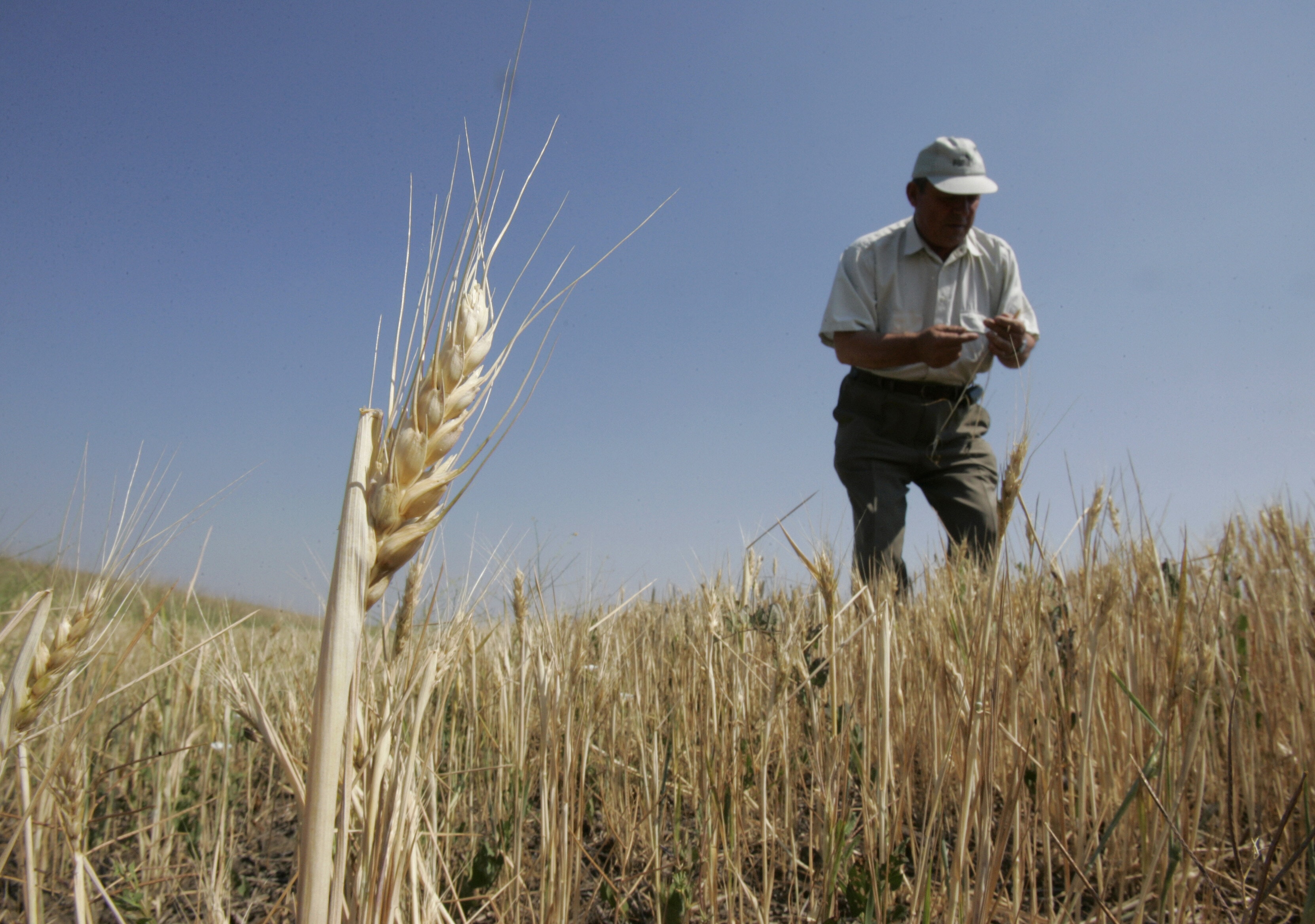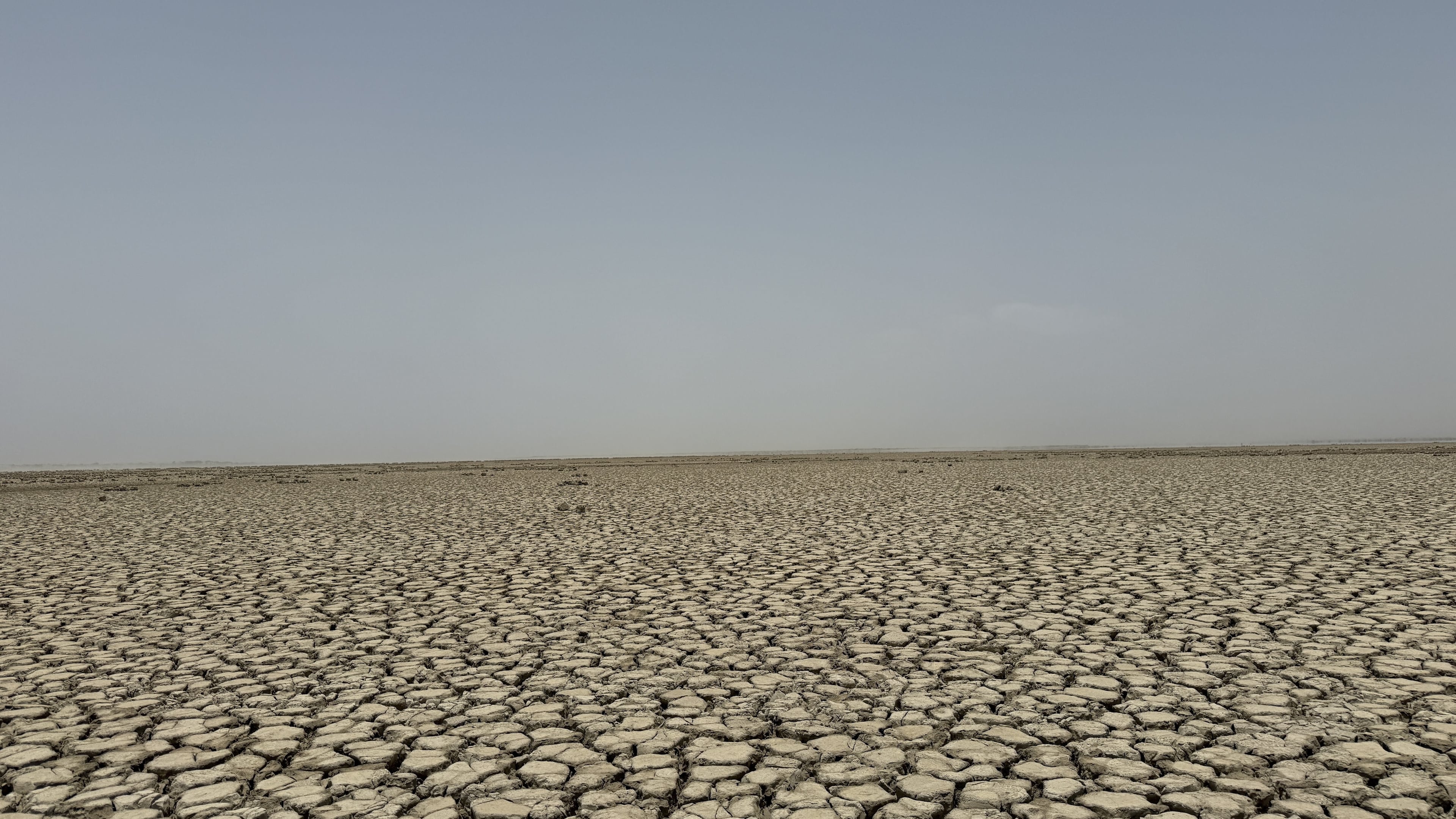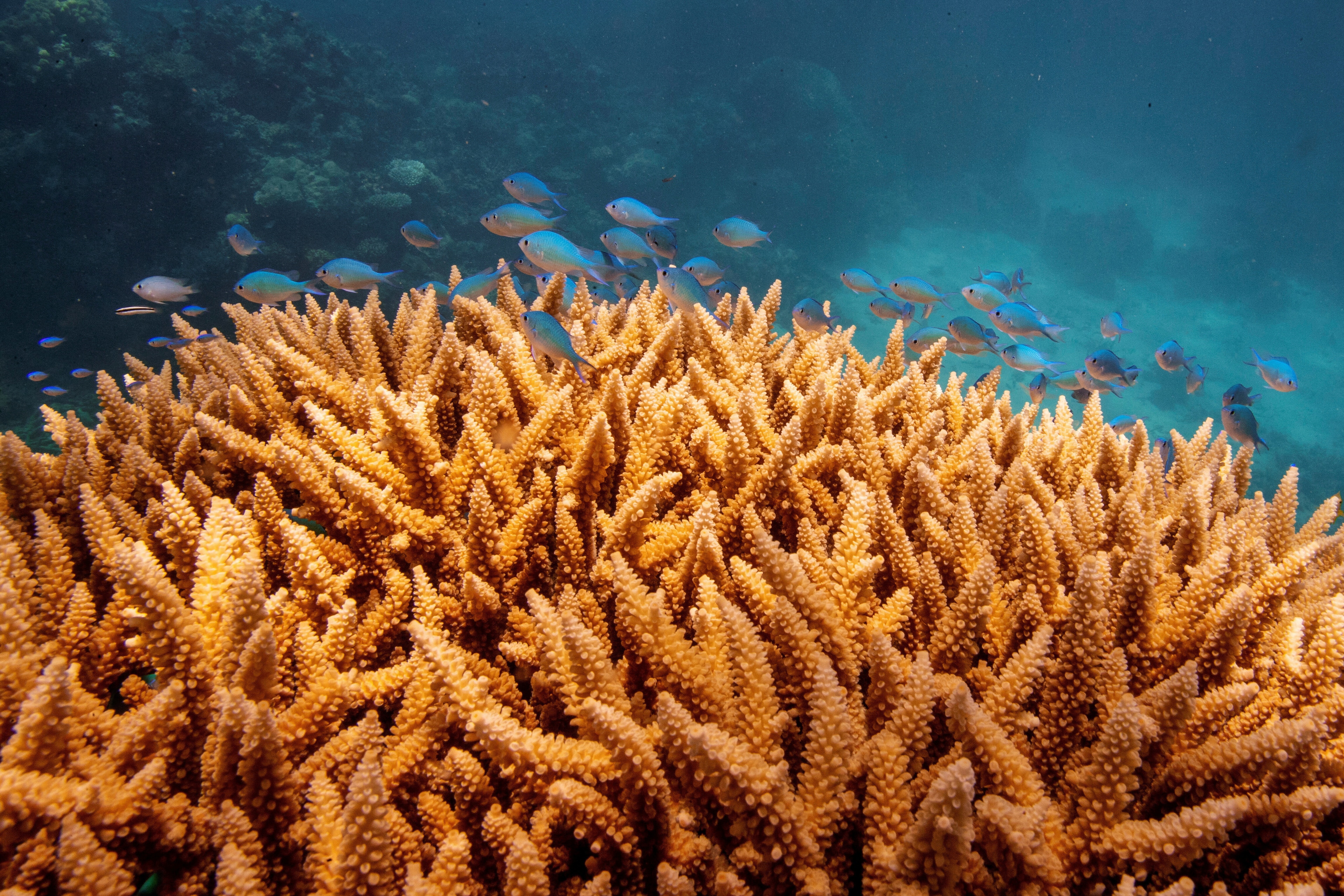Global ocean surface temperatures reach a record high, and the other nature and climate news you need to read this week

Top nature and climate news: Global ocean surface temperatures reach a record high; Ice sheet collapse could be more rapid than previously thought; and more.
Image: REUTERS/David Gray
Listen to the article
- This weekly round-up brings you key nature and climate news from the past week.
- Top nature and climate news: Global ocean surface temperatures reach a record high; Ice sheet collapse could be more rapid than previously thought; Fears grow of another severe drought in France.
1. The world's ocean surface temperature reaches an all-time high
Global ocean temperatures have hit a record high since satellite monitoring began, reports The Guardian. US government data shows this has led to marine heatwaves around the world as it creates more heat in the atmosphere and adds energy to global weather systems.
Preliminary data from the National Oceanic and Atmospheric Administration (NOAA) reveals the ocean surface's average temperature has reached 21.1°C since the beginning of April. This has beaten a previous high of 21°C recorded in 2016.
“The current trajectory looks like it’s headed off the charts, smashing previous records,” Professor Matthew England, a climate scientist at the University of New South Wales, told The Guardian. The data has been gathered largely by satellite observations, but excludes the sea around the poles.
It comes as the European Union's Copernicus Marine Service has reported sea surface temperature anomalies (SST) in the Mediterranean as well as off the Atlantic coasts of the Iberian Peninsula and North Africa. These were around +3°C above the normal reference value on 10 April 2023, the monitoring service says.
And SST anomalies are also predicted in the equatorial Pacific Ocean, according to NOAA. This means a 62% chance of an El Niño weather pattern developing over the summer, it says, which can affect weather patterns around the world.
2. France heading for worse drought than 2022
Very low groundwater levels have put France on course for an even more severe summer drought than last year, the French geological service BRGM has warned. The country suffered its worst drought on record last summer and, like most of Europe, has faced a dry winter that has prompted concerns over water security across the continent.
"The situation is worrying because the whole of France is affected and we have had several dry years," BRGM hydrologist Violaine Bault said. Groundwater levels are generally below those of 2022 and refill rates are insufficient in most of the country after a particularly dry winter, she added.
Some groundwater levels were at their lowest on record in the wine-making Roussillon region and in the southern Var region, which have both experienced large wildfires over recent summers. Many parts of France are likely to need to introduce water restrictions in the summer, according to BRMG's Bault.
What's the World Economic Forum doing about the ocean?
3. News in brief: Top nature and climate stories this week
Wind and solar energy represented a record 12% of global electricity generation last year, up from 10% in 2021. A report by the energy think tank Ember says 2022 could have marked peak emissions from the power sector, which is the largest source of planet-warming carbon dioxide.
Brazil's government is looking to invest more in a "bioeconomy" of small producers to protect the environment and livelihoods in the Amazon region, reports Context. Carina Pimenta, the newly appointed National Secretary for the Bioeconomy says cultural change is needed to move away from soy and cattle ranching, which is a major driver of deforestation.
Deforestation in the Amazon rainforest rose 14% in March from the previous year, according to Brazil's National Institute of Space Research. Preliminary official data shows that 356 square kilometres (137 square miles) were cleared in the Amazon last month.
Ice sheets can collapse by as much as 600 metres per day according to a new study, reports The Guardian. Scientists in the UK say the discovery indicates that ice sheets in Antarctica could be collapsing 20 times faster than the previously estimated 30 metres per day, significantly accelerating global sea level rise.
China's coastal sea levels hit their highest on record in 2022, according to the country's Ministry of Natural Resources. It says they have increased by an average of 3.5 millimetres per year since measurements began in 1980.
Projected global demand for the green energy transition can only be met if both the production and global trade of critical raw materials is significantly scaled up, the OECD has warned. It says although production and trade of commodities such as lithium, cobalt and rare earth elements have rapidly increased over the last decade, that growth is not enough to supply renewable energy technologies needed to hit global CO2 emission targets.
The president-designate of the upcoming COP28 summit says a "business mindset" is needed to fight the climate crisis. Sultan Al Jaber told The Guardian newspaper the problem cannot be solved by governments alone.
Kenya will spend $140 million to roll out an expanded insurance scheme for livestock farmers to cushion them against frequent droughts. The plan is part of a World Bank-sponsored project targeting 1.6 million herders in Djibouti, Ethiopia, Somalia and Kenya over the next half a decade.
Funding is being sought to support an initiative to sustainably manage Africa's Miombo woodlands, reports China Dialogue. The Maputo Declaration was signed by nine African countries last year to protect the two million square kilometre biome in central and southern Africa.
The climate crisis is changing how trees grow according to a new study, reports BBC News. Research into hardwoods in the US has found that their growing season has been prolonged by a month on average over the last century.
4. More on nature and the climate crisis on Agenda
We are approaching “the beginning of the end of the fossil age”, according to the fourth annual Global Electricity Review from energy think tank Ember. These charts show how renewables will replace fossil fuels, and which regions are leading the way in decarbonization.
The latest IPCC report says we need a substantial reduction in fossil-fuel use to keep temperature rises below 1.5°C. More than $35 trillion investment in transition technologies is required by 2030 to make this possible.
There is the potential for positive tipping points in the fight against climate change, according to a landmark report called The Breakthrough Effect. It offers a hopeful a roadmap of what’s possible, what’s inevitable and what’s imperative in the face of the climate crisis.
Accept our marketing cookies to access this content.
These cookies are currently disabled in your browser.
Related topics:
More on Climate ActionSee all
Tom Crowfoot
August 14, 2025
Sikander Bizenjo and Eric Shahzar
August 14, 2025
Tom Crowfoot
August 12, 2025
Luis Antonio Ramirez Garcia
August 11, 2025




